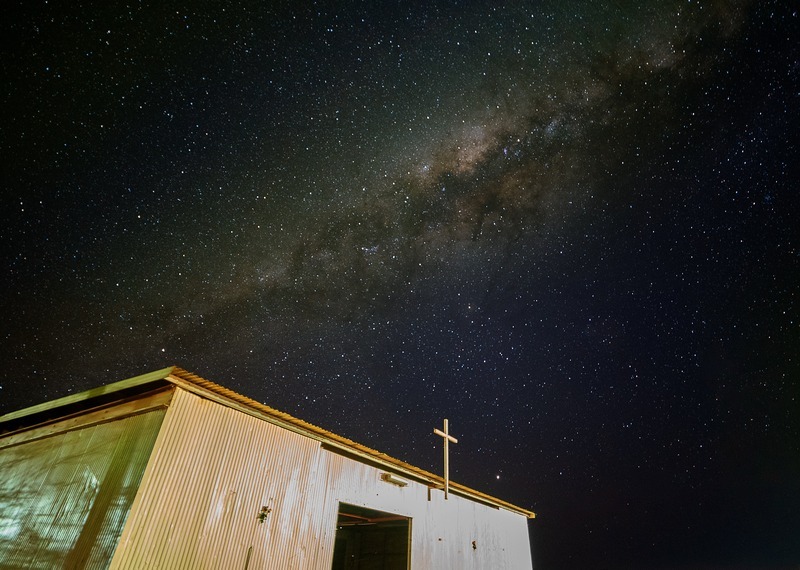
Four newly-discovered asteroids have been named after Catholics who had made themselves worthy of praise. One asteroid was named after a Pope who founded or started the tradition of papal astronomers and some of the observatories.
The International Astronomical Union's Working Group for Small Bodies Nomenclature recently published the latest batch of named asteroids, which include four new asteroids named after prominent figures in the history of the Vatican Observatory, namely Pope Gregory XIII, Father Christopher Clavius, Father Johann Hagen, and Father Bill Stoeger, and also one current staff member, Jesuit Father Robert Janusz.
Four New Asteroids to be Named After Worthy Catholics
According to Catholic News Agency, the naming process of the asteroids take decades. Once the object's orbit is well known enough, a permanent code of some designations is given to the discovered asteroid.
The Working Group for Small Bodies Nomenclature (WGSBN) of the International Astronomical Union oversees the process and includes 15 professional astronomers worldwide. The group prohibits using names associated with political or military activities until 100 years after the individual's death or the event's occurrence. It does not allow the purchasing of naming rights. The WGSBN evaluates proposed names, and only those that meet the group's criteria are approved.
Catholic Priests have been one of the greatest influencers in the astronomical studies of the world. According to CNS, 30 asteroids are currently named after the name of Jesuits, and the new Jesuits mentioned above are the latest addition.
Also Read: Pope Francis Appoints Six Women to Vatican Council in His Progressive Advancement
Who Exactly are these People: A Brief History of the Names Behind the New Asteroids
In the article in Pope History, Pope Gregory XIII was the 226th pope and held the position from 1572 to 1585. His contributions to the Catholic Church include significant reforms to the traditional calendar and diplomatic work with various Asian countries. He is also believed to be the pope who began the observatory and papal astronomers' tradition.
Pope Gregory XIII played a significant role in establishing several colleges affiliated with the Society of Jesuits. He also implemented substantial changes to the traditional calendar, which needed to be shorter. However, his religious beliefs also led him to view Protestants as traitors to the Church, and he urged King Phillip to dethrone Queen Elizabeth I of England.
According to McTutor, Christopher Clavius, a German Jesuit astronomer, was instrumental in helping Pope Gregory XIII introduce the Gregorian calendar. Clavius had a passion for mathematics, fueled by an eclipse of the sun that he witnessed in 1560.
This experience led him to devote his life to studying mathematics and astronomy. He later became a professor of mathematics at the Jesuit Collegio Romano in Rome, where he remained for the rest of his life. Despite becoming a teacher in 1564, Clavius continued his theological studies and did not become a full member of the Jesuit Order until 1575.
In an article in Brill, Johann Georg Hagen was introduced as the first Jesuit director of the Vatican Observatory. He had extensive correspondence with other Jesuit observatory directors between 1906 and 1930. The letters exchanged between Hagen and his colleagues, preserved at the Vatican Observatory and some other observatories, provide valuable insights into the work and challenges faced by Jesuit observatories during that period.
These letters come from observatories worldwide, including Europe, North America, Asia, and Australia. This correspondence sheds light on Hagen's relationship with other observatory directors and provides a glimpse into the contents of their discussions.
While Bill Stoeger was a prominent scientist at the Vatican Observatory Research Group, where he focused on various areas, including cosmology, astrophysics, philosophy, and theology, according to the University of Arizona, his work in these fields is evident in the eight volumes of the "God's Action in the World" series, which were co-published by the Vatican Observatory and the Center for Theology and the Natural Sciences.
Lastly, the current staff member of the Vatican Observatory, Father Robert Janusz, is skilled in informatics and astronomy, with experience in programming and working on an international project using the Vatican Telescope VATT. He is also interested in the philosophy of nature, specifically in merging humanistic and scientific approaches through ethical and theological global perspectives.
Related Article: Vatican Library Appoints Salesian Priest as New Prefect, Bringing Fresh Leadership to Its Historical Collections


















